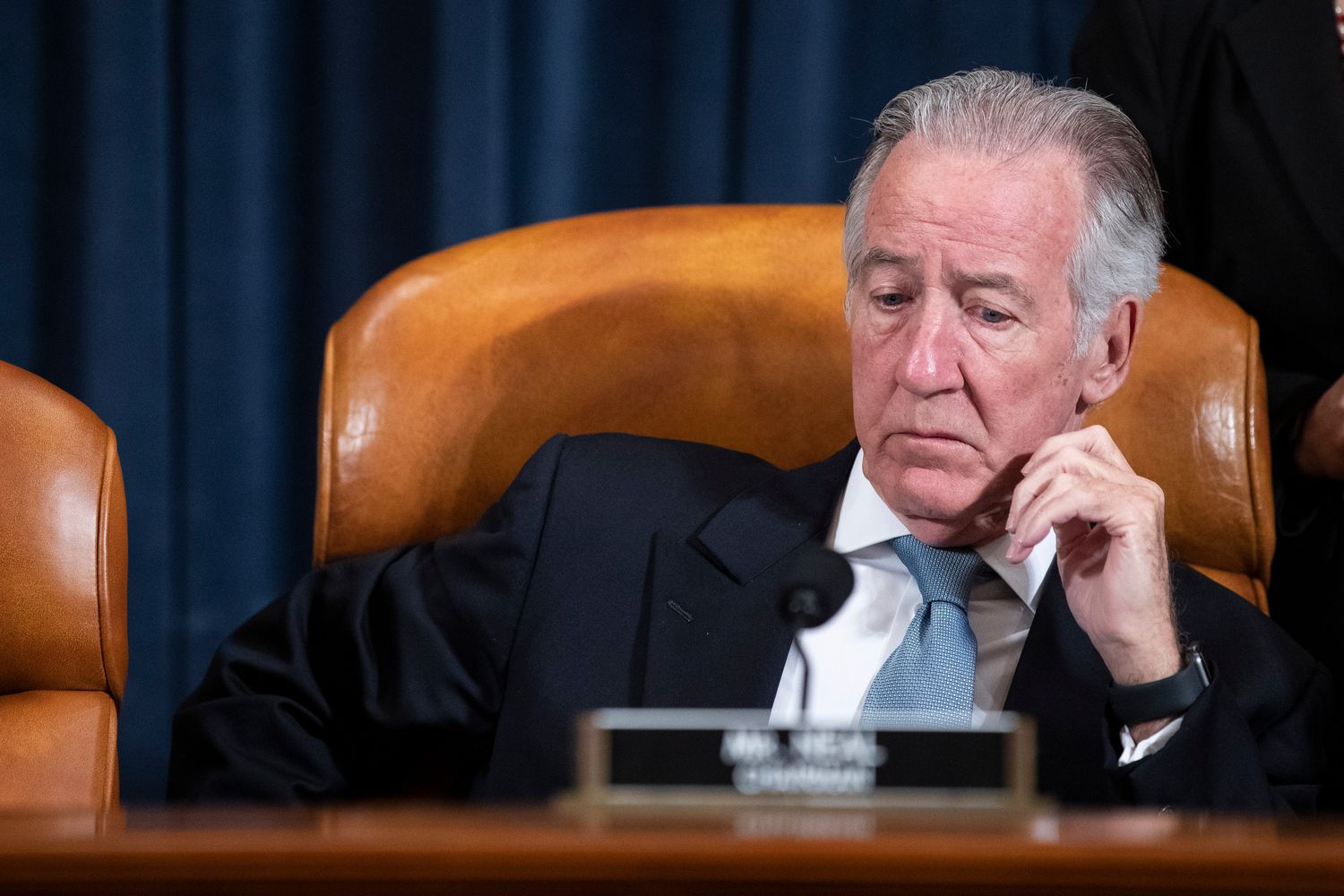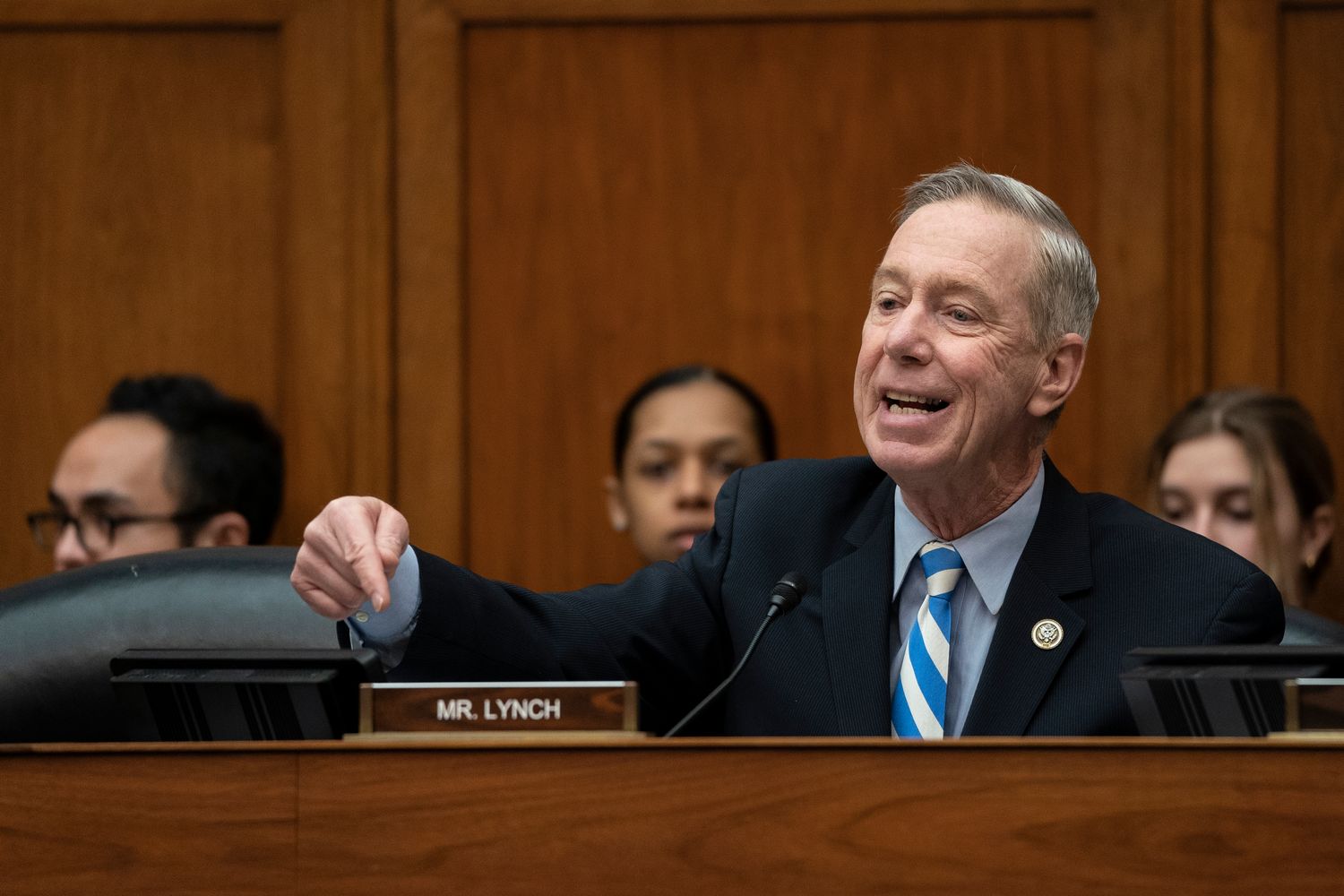
BOSTON — Rep. Richard Neal hasn’t had a tough primary challenge in 30 years.
But Massachusetts’ Sept. 1 contest represents the last, best chance for the left to take down a Democratic incumbent this year, so the chairman of the House Ways and Means Committee isn’t taking any chances against a progressive challenger.
He’s used his powerful committee perch to raise $3 million through March — the latest fundraising figures available — leaving him with $4.5 million cash on hand. He flexed his muscles when the federal government tried to seize a shipment of personal protective equipment that was on its way to a local hospital in April. Months before voters go to the polls, Neal has already aired three ads.
After watching another seemingly safe longtime Massachusetts Democratic incumbent, Michael Capuano, get taken down in the 2018 primary — and the likely defeat of at least one Democratic House incumbent in New York’s June 23 primary — the 71-year-old Neal is shoring up his defenses against Holyoke Mayor Alex Morse, a challenger who is half his age.
"I know the spotlight’s now shining on anybody who is young and quote-unquote progressive," said Candy Glazer, a former chair of the Longmeadow Democratic Town Committee who supports Neal. "I know it’s popular now, progressive, somebody with gray hair’s gotta go, but he’s got the record. He’s actually delivered."
In one of the nation’s bluest states, he’s not the only veteran House incumbent fending off a challenge from the left: Rep. Stephen Lynch is also getting pinched. The coronavirus crisis has shined the spotlight on primary care doctor and infectious disease specialist Dr. Robbie Goldstein, who reported raising five times as much money in June as he did in April and May. He’s broken his single-day fundraising record three times in the wake of progressive gains in the New York primary, and raised $50,000 in the last week alone.
A self-proclaimed moderate who renounced his "pro-life" label last year when some states were passing restrictive abortion laws, Lynch expressed concerns in a radio interview last year with the "socialist bent" of some candidates running in the 2020 presidential primary, who called for universal health care, tuition-free college and a Green New Deal.
Goldstein supports all of those policies. But it’s less clear whether the district’s constituents do — former Vice President Joe Biden won the Democratic primary in every city and town in Lynch’s district on Super Tuesday.
Lynch, 65, doesn’t appear to have the same sense of urgency as Neal. The South Boston-based congressman spent no money on television or digital advertising this cycle, and his campaign didn’t say whether he plans to later this summer. Lynch had $1.5 million in the bank at the end of the March filing period.

"He doesn’t take any race for granted," said Lynch spokesman Scott Ferson. Lynch beat his 2018 primary challenger, video game developer Brianna Wu, with 71 percent of the vote.
Neal, on the other hand, went on the air with his first reelection ad two months earlier than he did in 2018, when he easily dispatched an energetic challenge from another progressive, Springfield attorney Tahirah Amatul-Wadud. The television spot featured a local business in Holyoke, Morse’s hometown, thanking Neal for helping secure a Paycheck Protection Program loan.
In Massachusetts, national progressive groups are hoping to replicate their recent success in New York, where races involving Reps. Eliot Engel and Carolyn Maloney remain uncalled pending counting of absentee ballots and Engel’s opponent, Jamaal Bowman, has already claimed victory.
Like Bowman, Morse is backed by Justice Democrats and the Sunrise Movement. Morse and Goldstein are both endorsed by Our Revolution, the spin-off group from Bernie Sanders’ 2016 presidential campaign; Andrew Yang’s Humanity First, and Indivisible.
Seeking to tap into progressive energy surrounding Bowman, Morse even went to the Bronx to campaign alongside Bowman on primary day. Bowman in turn urged voters to support Morse in a video on Twitter.
“Vote for this man!” Bowman wrote in a tweet.
As a result, Morse, Holyoke’s first openly-gay mayor, raised $110,000 from 2,200 contributions in a single week after the primaries in New York and Kentucky, his campaign told POLITICO. For a candidate that had $140,000 in cash on hand at the end of the last fundraising quarter, that’s a significant bump.
“The establishment is officially on notice that our movement has momentum. Together we can build a Democratic Party that prioritizes working people over corporate profits," Morse said when he announced Bowman’s endorsement.
If the dynamic sounds a little familiar, that’s because it is. In 2018, Ayanna Pressley made history by toppling Capuano in a Boston-area district, just weeks after Alexandria Ocasio-Cortez’s stunning upset of former Rep. Joe Crowley. Ocasio-Cortez endorsed Pressley in a tweet similar to the one Bowman posted for Morse.
Like Pressley, who was a Boston city councilor with a strong political organization when she ran, Morse is not a political unknown — he’s been mayor for nearly a decade.
"He’s come up in politics during the social media time and he’s been able to use that well to get his message out," said state Rep. Aaron Vega, a former Holyoke city councilor who is staying neutral in the race.
"Like him or not, people know who he is. It’s much different than other people who have run against the congressman who didn’t have that level of name recognition and experience. Whether you agree with him or not, or what, he’s been mayor for 10 years so he understands how things work and he does his homework. It’s definitely a different kind of challenge," Vega added. "Anything’s possible, especially in this time."
Still, both Neal and Lynch have the advantage of representing districts that are older and less diverse than the ones that have seen progressive upsets.
"Some of the things in this campaign, or maybe in other campaigns that were very trendy in New York or with AOC two years ago just don’t fly here," said Glazer, who is a fixture in Western Massachusetts politics. She also pointed to the size of the district — Neal represents 87 cities and towns that cover nearly a quarter of the state’s land area, unlike the smaller, and more densely populated districts where progressives won in Massachusetts and New York.
Amatul-Wadud, who lost to Neal by 71 percent to 29 percent in the 2018 primary, said national progressive interest isn’t necessarily enough to overcome those hurdles.
"After AOC won in 2018, we got a big financial boost, we got a lot more media attention and more volunteers because people felt like that was a sign change could happen where we are," she said. "[T]he challenge still remains the same. This district is very, very different than the urban district of New York 16."
Morse’s task will be to activate voters in Springfield and Pittsfield, the two cities with the largest number of voters in the 1st District, Amatul-Wadud said. Springfield has seen an historic number of protests against police brutality and racism in the wake of George Floyd’s death in Minneapolis, and not seizing on the moment has been a "lost opportunity," for Morse, she said.
"It’s a lost opportunity if they’re not taking the bull by the horns and talking about this and proposing solutions each and every day. And I’m not seeing it," Amatul-Wadud said. "This is the moment I wish I had in 2018."
Source: politico.com
See more here: news365.stream






